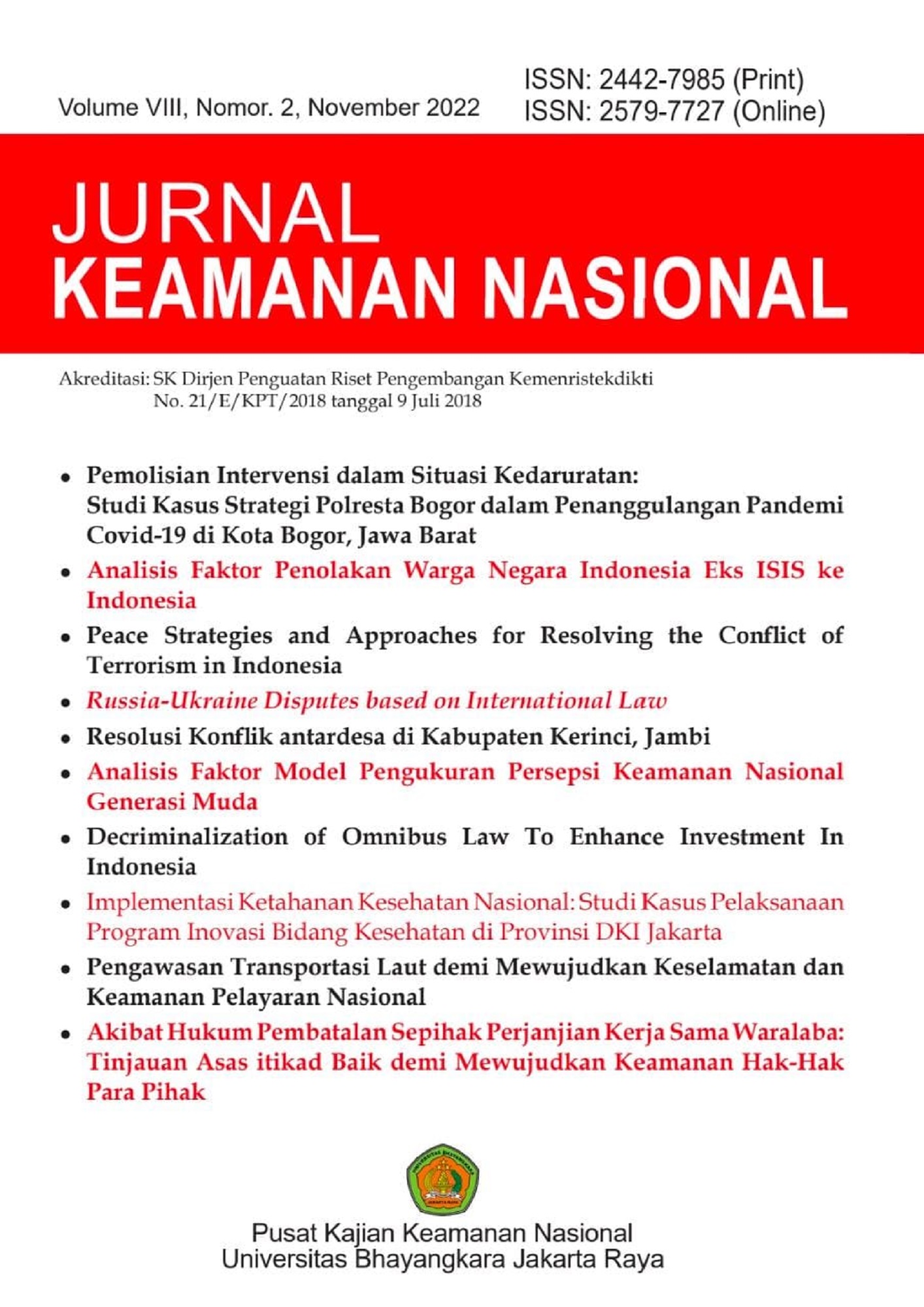Pengawasan Transportasi Laut demi Mewujudkan Keselamatan dan Keamanan Pelayaran Nasional
DOI:
https://doi.org/10.31599/znrdfa51Keywords:
Supervision, Sea Transportation, ShippingAbstract
This study aims to study and analyze forms of sea transportation supervision in order to realize the safety and security of national shipping based on laws and regulations. This study uses a normative juridical approach with descriptive analysis. The data used is secondary data obtained through a literature study, which is then analyzed qualitatively. Based on research, law enforcement implies that there is a demand for the ability to maintain and supervise compliance with certain legal provisions in the waters of Indonesia’s national jurisdiction. Guidance in the shipping sector is controlled by the state and the guidance is carried out by the government, while shipping guidance consists of: regulation, supervision, and control. The factors that become obstacles in law enforcement for the safety of sea transportation service users can be carried out by conducting periodic seafarer resource training and carried out seriously and seriously and with full responsibility for the creation of expertise and skills based on the certificate held by the captain, Ship Officers, and Ship’s Crew.
Downloads

Downloads
Published
Issue
Section
License
Please read and understand the copyright terms for submissions to this journal.
Copyright Notice
The Jurnal Keamanan Nasional is under the Creative Commons Attribution 4.0 International (CC-BY 4.0) License, according to which:
1) Authors retain copyright and grant the journal the right to first publication, with the work simultaneously licensed under the Creative Commons Attribution (CC-BY 4.0) that allows the sharing of articles published with the acknowledgement of authorship and the initial publication in this journal.
2) The authors are authorized to make additional contracts separately for distribution of the version of the work published in this journal (for example, publication in an institutional repository or as a chapter of the book), as long as there is recognition of authorship and initial publication in this journal.
3) Authors are authorized and encouraged to publish and distribute their work online (for example, in institutional repositories or on their personal pages) at any time before or during the editorial process, as it increases the impact and reference of the published work.












